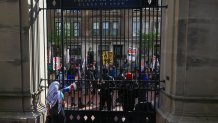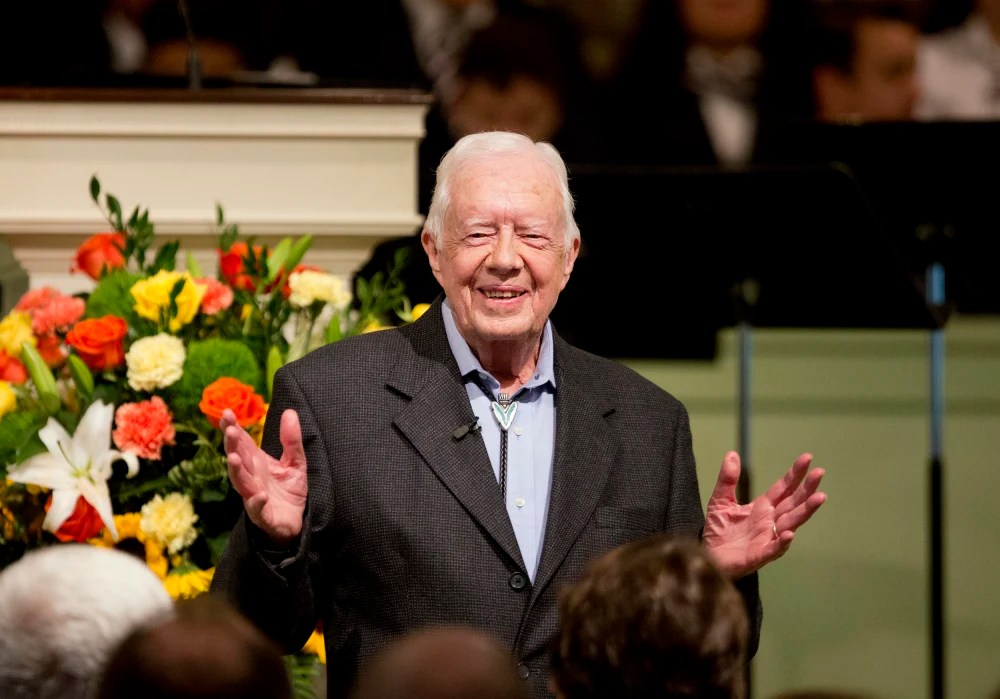The president of Columbia University, Minouche Shafik, issued a deadline to protesters on her campus to come to an agreement by midnight Tuesday to vacate a pro-Palestinian encampment.
"I fully support the importance of free speech, respect the right to demonstrate, and recognize that many of the protestors have gathered peacefully," Shafik said in a letter to the school community. "However, the encampment raises serious safety concerns, disrupts campus life, and has created a tense and at times hostile environment for many members of our community. It is essential that we move forward with a plan to dismantle it."
Shafik said if an agreement is not reached, the school will "consider alternative options for clearing the West Lawn and restoring calm to campus." (The full text of Shafik's letter is below.)

Get Tri-state area news delivered to your inbox. Sign up for NBC New York's News Headlines newsletter.
The encampment has occupied the school's West Lawn for the better part of the last four days, according to the university.
Following protests over the Israel-Hamas war on Columbia's campus over the past week, the school made the decision classes will be hybrid through the remainder of the term, with students have the option to learn remotely. The action came a day after the school went remote for a day.
More than 100 protesters were arrested on the campus April 18 as the NYPD cleared the university's South Lawn.
Local
U.S. House Speaker Mike Johnson announced he will be visiting Columbia University on Wednesday.
"Amid anti-Israel protests, Jewish students at Columbia University don't feel safe," Johnson posted Tuesday on X. "It’s become so dangerous that students were forced out of the classroom. Let’s be clear: these are not peaceful protests, these are antisemitic mobs."
More than 100 protesters were arrested at New York University earlier this week as more colleges nationwide, including Yale, are seeing protests.
Columbia University president's letter to the school community
Morningside Campus Update
April 23, 2024
Dear fellow members of the Columbia community:
Nearly four days ago, the West Lawn of the Morningside campus was turned into an encampment by hundreds of student activists. I fully support the importance of free speech, respect the right to demonstrate, and recognize that many of the protestors have gathered peacefully. However, the encampment raises serious safety concerns, disrupts campus life, and has created a tense and at times hostile environment for many members of our community. It is essential that we move forward with a plan to dismantle it.
For several days, a small group of faculty, administrators, and University Senators have been in dialogue with student organizers to discuss the basis for dismantling the encampment, dispersing, and following university policies going forward. Those talks are facing a deadline of midnight tonight to reach agreement.
I very much hope these discussions are successful. If they are not, we will have to consider alternative options for clearing the West Lawn and restoring calm to campus so that students can complete the term and graduate. I am deeply sensitive to the fact that graduating seniors spent their first year attending Columbia remotely. We all very much want these students to celebrate their well-deserved graduation with family and friends.
I also want to be clear that we will not tolerate intimidating, harassing, or discriminatory behavior. We are working to identify protestors who violated our policies against discrimination and harassment, and they will be put through appropriate disciplinary processes. The right to protest is essential and protected at Columbia, but harassment and discrimination is antithetical to our values and an affront to our commitment to be a community of mutual respect and kindness.
I am grateful for the support of City and State officials in managing this crisis, which has drawn a large volume of outside protestors around our perimeter, exacerbating security concerns and producing much of the incendiary language that is causing deep distress for many in our community.
We will provide further updates tomorrow.
Sincerely,
Minouche Shafik
President, Columbia University in the City of New York



